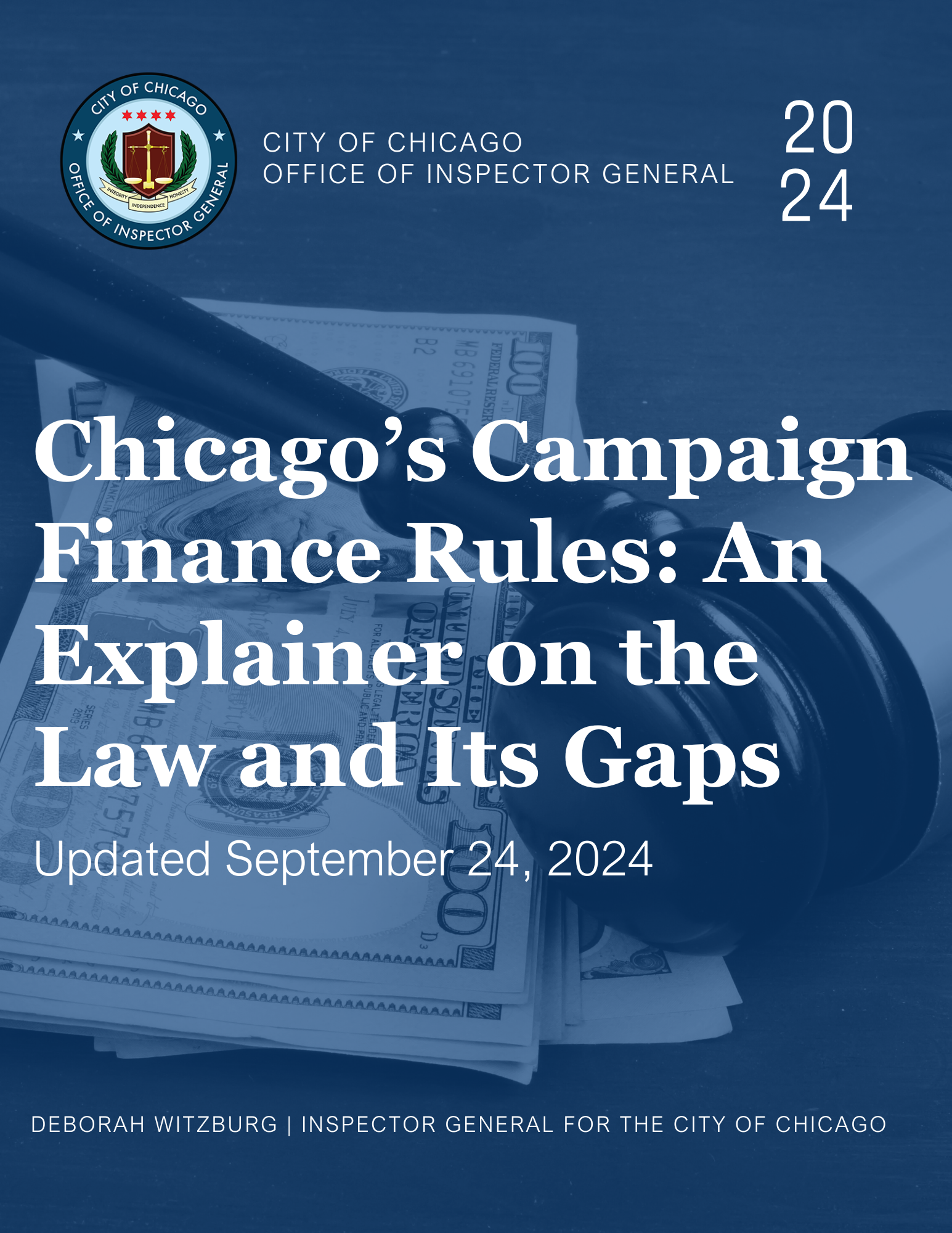Chicago’s Campaign Finance Rules: An Explainer on the Law and Its Gaps
Summary
The City of Chicago has several laws in place to prevent “pay-to-play” schemes with City officials or candidates in the form of campaign finance restrictions. These laws limit the amount of money that a person with an interest in City business can contribute to a City official’s political campaign or a candidate for a City office.
Executive Summary
The Office of Inspector General (OIG) has the authority to investigate misconduct by City actors and violations of the City’s Governmental Ethics Ordinance (GEO), including violations of the aforementioned campaign finance restrictions. Although campaign finance laws are designed to protect against corruption or the appearance of corruption, gaps in City law permit certain entities who have an interest in City business to contribute unlimited amounts of funds to elected City officials and candidates.
With this explainer, OIG aims to provide Chicagoans with basic information about the current state of the City’s campaign finance laws, and what they do—and, pointedly, do not—prohibit.
Correction
In Chicago’s Campaign Finance Rules: An Explainer on the Law and Its Gaps, footnote 4, identifying the paragraph in the Municipal Code of Chicago that defines “lobbyist, was listed as Municipal Code of Chicago, § 2-156-010(h). The reference should be the Municipal Code of Chicago, § 2-156-010(p).
Subscribe to the OIG Bulletin to get notified aboSut future publications.

